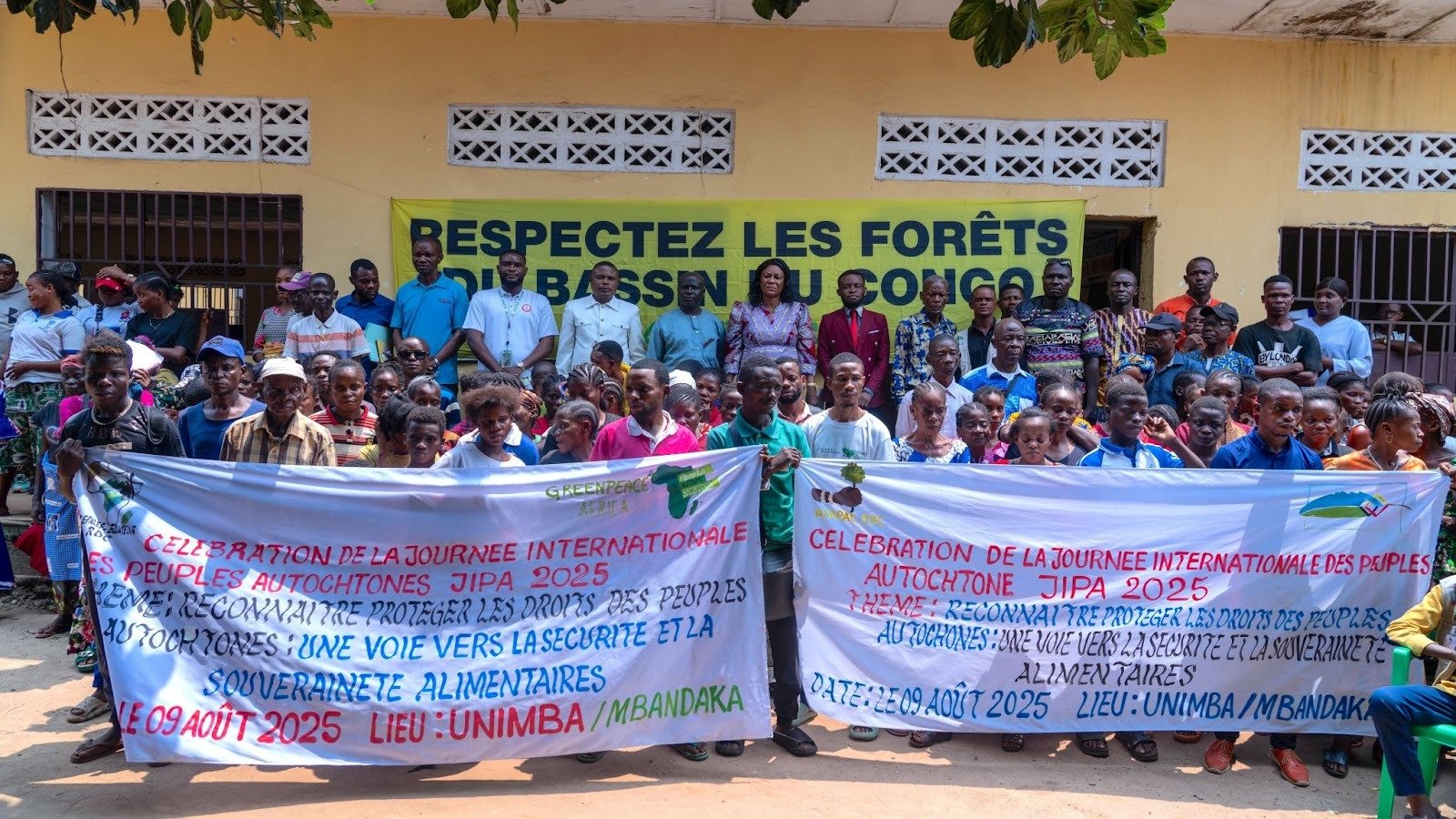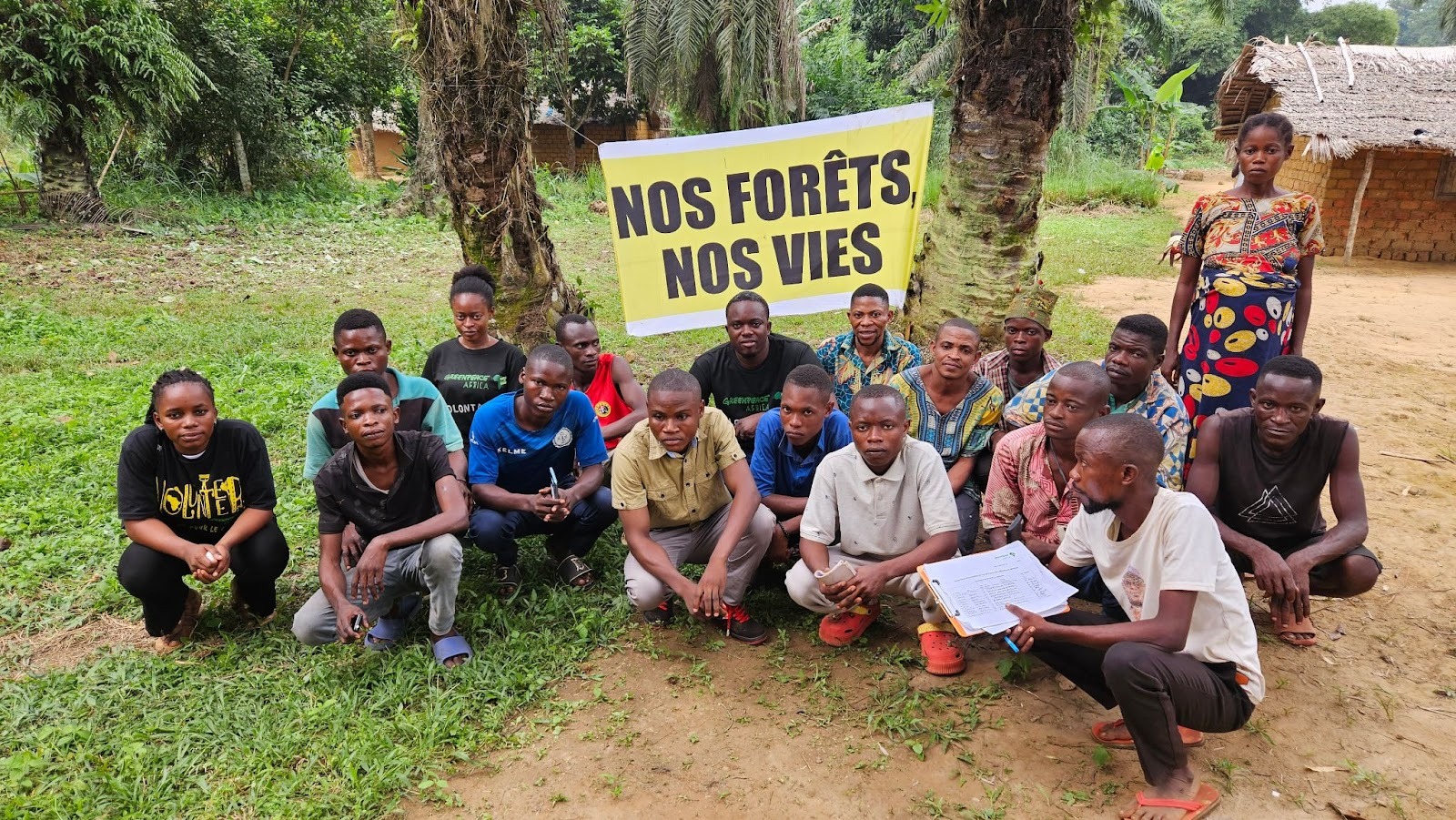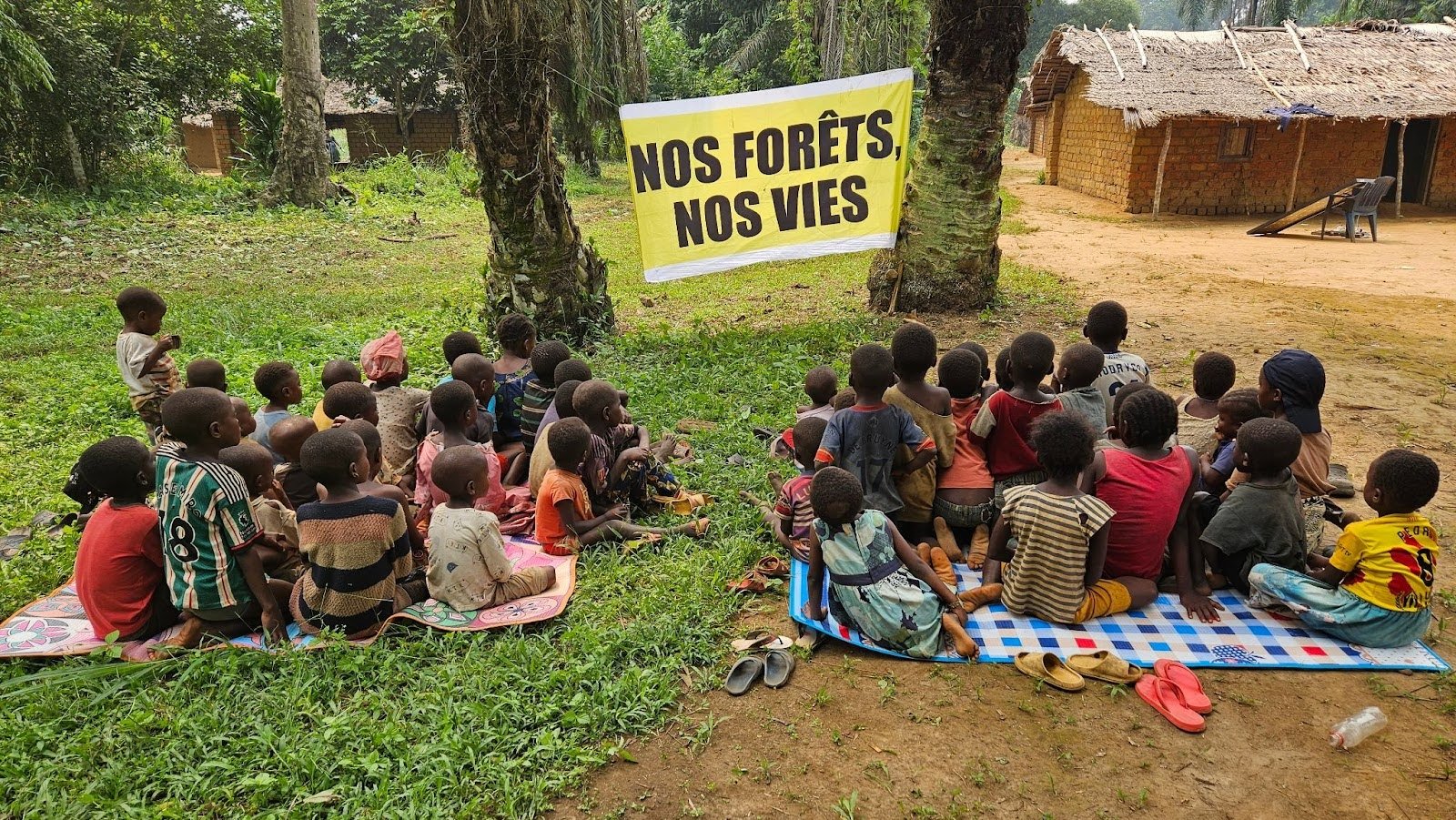Johannesburg, South Africa, 24 October 2019 – Today, Indigenous leaders targeted CEOs and senior management of some of the world’s biggest brands, including Nestle, Unilever and Mondelēz, at a summit in Berlin, to demand they end their role in forest destruction in the Amazon and across Brazil.
Eight leaders from Brazil’s Indigenous Peoples Articulation (APIB) travelled to the Consumer Goods Forum (CGF) Sustainability Summit and delivered a speech outside exposing the companies’ failure to end deforestation for commodities. A key concern is the serious increase in violence against Brazilian Indigenous Peoples and the destruction of their lands, since President Bolsonaro took office in January.
“The companies you represent bear part of the responsibility for the threat we Indigenous People are facing in Brazil. Be conscious about your responsibility. Everything is at stake, the rainforest, the climate and our survival,” said Sonia Guajajara, one of the ten Indigenous leaders from APIB visiting Europe.
Since January, land invasions in Brazil have doubled and attacks against indigenous territories have increased by 44%, according to the Indigenous Missionary Council.[2] Intruders, often heavily armed, enter Indigenous lands to illegally mine, log, or otherwise extract resources.
Greenpeace Germany activists delivered a burning tree stump bearing the words ‘stop killing forests’ to the venue’s front doors and supported the Indigenous leaders, who had earlier tried to gain access to the summit but were turned away, by displaying banners that read ‘Stop Talking, Start Acting’ and ‘Your Products Destroy Lives’.
In 2010, the CGF and its members promised to end deforestation by 2020 through “responsible sourcing” of commodities including cattle and soya, the key drivers of forest destruction in Brazil.[3] In June, Greenpeace International report Countdown to Extinction, revealed, from 2010-2020, at least 50 million hectares of rainforest is set to be destroyed globally for commodities. Now, even CGF members admit they will fail.[4]
The Indigenous leaders are in Germany as part of a month-long European tour called ‘Advocacy Tour Indigenous Blood: Not a Single Drop More’.[5] They will meet political and business leaders, and media, and present at international courts, to raise awareness and demand action.
Indigenous people and local communities living in the world’s second largest rainforest in the Congo basin face similar human rights violations, a lack of recognition, insecure land tenure and increased pressure on land and resources from logging, agribusiness, and mining. Communities in the Democratic Republic of the Congo, the Republic of the Congo, Cameroon and elsewhere are facing forest destruction, displacement, and deprivation of their livelihoods.
“The message delivered today in Berlin by brave indigenous leaders from Brazil is part of a global movement of indigenous people. They reject the system that destroys their homes in the name of development,” said Dr. Victorine Che Thöner, campaign lead for the Greenpeace Africa forest campaign. “By guarding the forest they play a crucial role in mitigating the climate and extinction crises. These people deserve our solidarity,” she added.
ENDS
Photos and videos: https://media.greenpeace.org/collection/27MZIFJ8FRG7C
Notes:
[1] More information about the Consumer Goods Forum Summit can be found here
[2] The Indigenous Missionary Council report can be found here and a recent report by Human Rights Watch can be found here. In August, Climate Change and Land, a report by the Intergovernmental Panel on Climate Change recognised the role of Indigenous Peoples as forest guardians, their contributions to climate solutions, and the importance of their knowledge and practices for climate resilience. Their report is here
[3] The CGF’s statement on ending deforestation can be found here
[4] A statement from Dave MacLennan, chief executive of Cargill, can be found here
[5] More information about The APIB delegation, formed by Sonia Guajajara, Nara Baré, Alberto Terena, Angela Kaxuyana, Celia Xakriabá, Dinaman Tuxá, Elizeu Guarani Kaiowá, and Kretã Kaingang is here
Contacts:
Melanie Aldrian, media team, Greenpeace Germany: [email protected], +49 (0)151 23 350 385
Tal Harris, International Communications Coordinator, Greenpeace Africa,, [email protected], +221-774643195,
Greenpeace Africa Newsdesk: [email protected]



